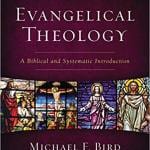Alma Brodersen
The End of the Psalter: Psalms 146–150 in the Masoretic Text, the Dead Sea Scrolls, and the Septuagint.
Baylor University Press reprint of 2017 Walter de Gruyter edition Berlin/Boston.
321 pages.
Review by Dr. Jill Firth
Alma Brodersen completed her D.Phil. in Theology at the University of Oxford, under Professor John Barton. She has been a Postdoctoral Researcher at the University of Munich, and is currently Postdoctoral Researcher and Lecturer in Theology (Old Testament) at the Faculty of Theology, University of Bern, Switzerland.
In The End of the Psalter, Brodersen challenges the unity of the Final Hallel (Psalms 146–150) with a detailed review of commonly proposed intertextual connections and themes, based on a comparison of versions including MT, LXX, and the Dead Sea Scrolls.
Brodersen introduces the debate on the end of the Psalter in her first chapter. Some approach Psalms 146–150 through “Synchronic Psalter Exegesis,” seeing these psalms as “a clear end to the Psalter.” Others undertake “Diachronic Psalter Exegesis,” which would be expected to consider psalms individually before considering their place in the Psalter as a whole, however, influential exegetes Erich Zenger, Martin Leuenberger, Egbert Ballhorn, Matthias Millard, Reinhard Kratz and Friederike Neumann all consider that at least portions of these psalms were written for their place at the end of the Psalter. This view has been challenged by Erhard Gerstenberger and David Willgren. Three reasons undergirding the perceived unity of Psalms 146–150 are questioned by Brodersen: the order in the Masoretic Psalter, the framing hallelujahs, and intertextual linkages between Psalms 146–150.
Her book firstly introduces the Hebrew Masoretic Text, the Hebrew Dead Sea Scrolls, and the Greek Septuagint, before examining each psalm in Psalms 146–150 in these versions. She chooses to work backwards from Psalm 150 to Psalm 146, firstly because of the large volume of commentary on Psalm 150, and secondly to emphasise the importance of reading each psalm individually. Each chapter begins with the Masoretic Text as the only complete Hebrew text, then considers fragments from the Dead Sea Scrolls, emphasising differences from MT. Thirdly, the Greek translation of the LXX is examined, attending to form, intertextuality, content, genre, and date in each version.
Challenging the argument that the Final Hallel was written as an ending to the Psalter, Brodersen proposes separate origins for each of these psalms, and shows that the order in MT is not found in most of the Dead Sea Scrolls, and that the LXX divides MT Psalm 147 into two portions (Ps 147.1–11, 12–20). She concludes, “the end of the Psalter has to be interpreted based on Psalms Exegesis which cannot be replaced by Psalter Exegesis limited to the Masoretic text.”
This volume is valuable for Brodersen’s detailed study of the ancient sources and her careful argumentation of her thesis. She challenges a simple assumption of the unity of Psalms 146–150, and even those who come to different conclusions will benefit from her research. This book will be an essential handbook in understanding the psalms at the end of the Psalter.
Jill Firth is a lecturer in Hebrew and Old Testament at Ridley College Melbourne.












